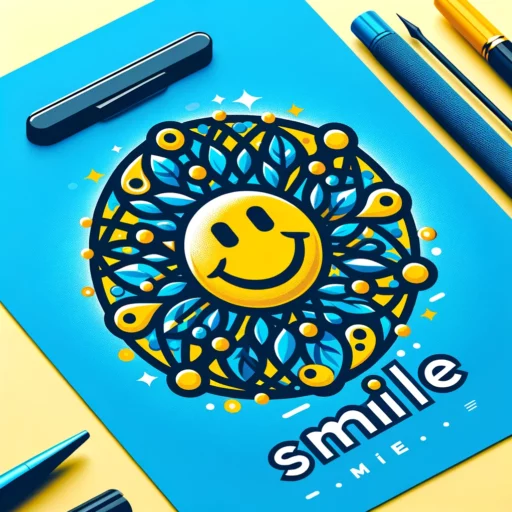Exploring the Ramayan: Insights and Lessons from India’s Timeless Epic
In the tapestry of world mythology, few stories are as vibrant, profound, and enduring as the Ramayan. This ancient Indian epic, revered for millennia, offers a complex narrative of duty, love, bravery, and the eternal battle between good and evil.
Diwali: Illuminating the Significance, Traditions, and the Enchanting RAM Laxman Ayodhya Temple
Diwali: Illuminating the Significance, Traditions, and the Enchanting RAM...
Smile – The Many Benefits of Laughter
We all know that life can be hard sometimes, but it’s important to remember to take a step back and enjoy the little things that make us smile. Whether it’s a funny joke, a good book, or a delicious meal, there are plenty of reasons to make us smile.
The Celebrities Who Are Cleaning Their Own Homes In Lockdown
During the current coronavirus crisis, sales of cleaning products have doubled as we become more stringent about cleaning. It’s not just the everyday public who have been scrubbing their homes though - lockdown has meant that celebrities all over the world have been doing their own cleaning. Nicole Sherzinger posted pictures of herself mopping the floor, Victoria Beckham has become obsessed with the dishwasher, and even Joan Collins appeared in Hello! polishing the windows. This may not have been out of choice, but we do appreciate seeing them on social media, sharing their cleaning struggles.
Popular Articles
Divinely Designed Churches.
WHY I KILLED GANDHI – Nathuram Godse's Final Address to the Court.
Gandhiji's assassin, Nathuram Godse's Final Address to the Court.
 Nathuram Godse was arrested immediately after he assassinated Gandhiji, based on a F. I. R. filed by Nandlal Mehta at the Tughlak Road Police staton at Delhi . The trial, which was held in camera, began on May 27, 1948 and concluded on February 10, 1949. He was sentenced to death.
An appeal to the Punjab High Court, then in session at Simla, did not find favour and the sentence was upheld. The statement that you are about to read is the last made by Godse before the Court on the May 5, 1949.
Such was the power and eloquence of this statement that one of the judges, G. D. Khosla, later wrote, "I have, however, no doubt that had the audience of that day been constituted into a jury and entrusted with the task of deciding Godse's appeal, they would have brought a verdict of 'not Guilty' by an overwhelming majority"
Nathuram Godse was arrested immediately after he assassinated Gandhiji, based on a F. I. R. filed by Nandlal Mehta at the Tughlak Road Police staton at Delhi . The trial, which was held in camera, began on May 27, 1948 and concluded on February 10, 1949. He was sentenced to death.
An appeal to the Punjab High Court, then in session at Simla, did not find favour and the sentence was upheld. The statement that you are about to read is the last made by Godse before the Court on the May 5, 1949.
Such was the power and eloquence of this statement that one of the judges, G. D. Khosla, later wrote, "I have, however, no doubt that had the audience of that day been constituted into a jury and entrusted with the task of deciding Godse's appeal, they would have brought a verdict of 'not Guilty' by an overwhelming majority"The Komodo Dragon: The Largest and Most Lethal Lizard on Earth
 Image: Mats Stafseng Einarsen
Its tongue flickers snakishly from a mouth filled with toxic potential while its body boasts the bulk of a crocodile’s. Armed with the lethal weapons of our most feared reptilian counterparts, the Komodo dragon is best left alone. There’s just one snag: this fiend wouldn’t necessarily want to leave you alone, and you might not even know about it if it were on your tail. What’s more, it now seems that the largest lizard on the planet is deadlier than anyone previously thought.
Image: Mats Stafseng Einarsen
Its tongue flickers snakishly from a mouth filled with toxic potential while its body boasts the bulk of a crocodile’s. Armed with the lethal weapons of our most feared reptilian counterparts, the Komodo dragon is best left alone. There’s just one snag: this fiend wouldn’t necessarily want to leave you alone, and you might not even know about it if it were on your tail. What’s more, it now seems that the largest lizard on the planet is deadlier than anyone previously thought.The Top 20 Reasons Not to Move to Dubai (in no particular order!)
Living in Dubai is not wonderful and glamorous, as...
Latest Articles
Green Your Ride: Should You Buy An Electric Vehicle?
By Lucy Yardley
If you worry about the effect of climate change on the environment, then...
A Thrilling Robbery Near Kakori.
These words inspired the revolutionaries.And they proved these lines on...
THE SCIENCE BEHIND TEMPLE BELLS.
Why to be Ringed?
Most of the old Temples have large ...
If you are a vegetarian
Reduced Risk of Cancer - According to The Physicians Committee...































![las-lajas-cathedral Las Lajas Cathedral (Image Credit: Jungle_Boy [Flickr])](https://i0.wp.com/www.smileosmile.com/wp-content/uploads/2009/09/las-lajas-cathedral.jpg?resize=500%2C332)


